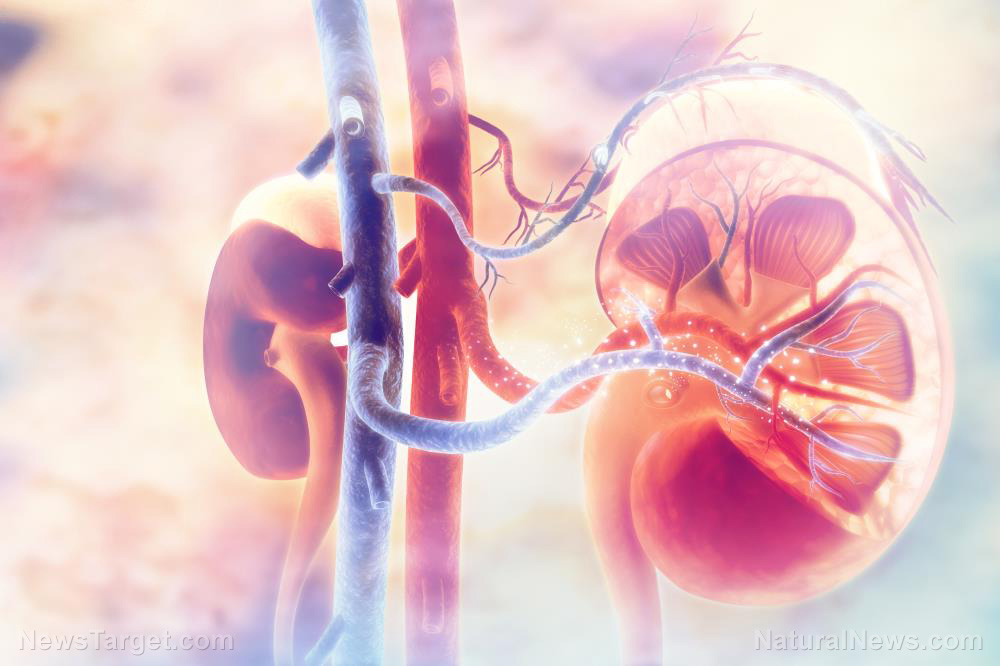 Parler
Parler Gab
Gab
- Chronic kidney disease is a pervasive but often silent threat, with many unaware of their condition.
- Traditional Chinese Medicine offers a holistic view, linking symptoms like tinnitus and bone loss to kidney vitality.
- Key lifestyle pillars for prevention include blood pressure control, a balanced diet, regular exercise and proper hydration.
- Specific foods like beans, black sesame and cranberries may support kidney function and reduce symptoms like nocturia.
- Proactive testing and avoiding harmful habits like smoking and NSAID overuse are critical for long-term kidney health.
More than a filter: The expansive role of the kidneys
Conventional medicine identifies the kidneys as sophisticated filters, responsible for removing waste, balancing fluids and electrolytes, and regulating blood pressure. However, Traditional Chinese Medicine (TCM) presents a more expansive view, considering the kidneys a foundational reservoir of the body’s vital energy, or "qi." In this centuries-old framework, the kidneys govern not only fluid metabolism but also the health of the bones, the marrow, the ears and even aspects of reproductive vitality. This historical context reframes common ailments like frequent nighttime urination, persistent tinnitus and osteoporosis not as isolated issues, but as potential external signs of a deeper, systemic decline in kidney essence. Modern cross-sectional studies have begun to validate some of these connections, finding associations between chronic kidney disease and hearing loss, for instance.Dietary allies for a strained system
The adage "food is medicine" finds robust application in kidney health. Beyond the universally recommended low-sodium, balanced diet, specific foods have shown promise in scientific studies for their protective effects. Legumes, including soybeans and lentils, have been linked in research to a reduced risk of chronic kidney disease and proteinuria. For those troubled by nocturia—a frequent symptom of kidney strain—black sesame seeds offer magnesium to calm the nervous system, while dried cranberries have demonstrated a significant ability to reduce urinary urgency and frequency in clinical trials. Furthermore, a diet rich in vegetables like bok choy and mushrooms such as wood ear can contribute to bone strength and help manage cholesterol, a common comorbidity that exacerbates kidney damage.Lifestyle: The foundation of prevention
The most effective strategies for preserving kidney function are rooted in daily habits. Medical experts universally stress the importance of controlling blood pressure and blood sugar, the two leading drivers of kidney disease. Regular exercise is a cornerstone, as it naturally helps regulate both. Proper hydration is crucial, though the ideal amount can vary; the goal is to assist the kidneys in flushing toxins without overburdening them. Critically, individuals are advised to limit the use of non-steroidal anti-inflammatory drugs (NSAIDs), common pain relievers that can cause significant kidney damage with prolonged use. Smoking cessation is equally vital, as it impairs blood flow to these highly vascular organs.Integrating ancient techniques with modern vigilance
TCM offers complementary practices that focus on strengthening kidney qi. Acupressure, for example, provides non-invasive methods to potentially alleviate symptoms. Massaging the "fuliu" acupoint, located on the inner lower leg, is believed to strengthen kidney function, boost energy and improve focus. Similarly, rubbing the "shenshu" and "zhishi" acupoints on the lower back is a traditional technique used to enhance kidney energy and address tinnitus. These practices, while requiring more rigorous scientific validation, represent a low-risk, proactive approach to wellness that aligns with a holistic health philosophy. However, they are meant to complement, not replace, conventional medical care, especially the critical step of regular testing for those at risk.An empowered path forward
The growing dialogue between ancient holistic systems and modern nephrology creates a powerful, unified message: kidney health is inextricably linked to overall well-being and is largely within an individual's control. The convergence of these perspectives demystifies the body's internal processes and provides a practical, multi-faceted blueprint for prevention. In a world facing rising rates of diabetes and hypertension, this knowledge is not merely informative—it is essential. By recognizing the early warning signs, adopting kidney-supportive nutrition and committing to a lifestyle that reduces strain, individuals can take decisive steps to ensure these silent sentinels continue their vital work for a lifetime. Sources for this article include: TheEpochTimes.com Kidney.org MountElizabeth.comCarcinogenic pig drug banned worldwide remains in U.S. food supply as FDA delays action
By Cassie B. // Share
Big Food’s deceptive new coalition aims to gut state food safety laws
By Cassie B. // Share
Two hours of sitting harms your arteries… unless you drink this first
By Cassie B. // Share
European allies to hold secret meeting in Madrid to boost support for Ukraine
By Patrick Lewis // Share
Trump denies imminent Venezuela strikes amid reports of military buildup
By Kevin Hughes // Share
Scientists discover a shocking new way to breathe – through the gut
By S.D. Wells // Share
Governments continue to obscure COVID-19 vaccine data amid rising concerns over excess deaths
By patricklewis // Share
Tech giant Microsoft backs EXTINCTION with its support of carbon capture programs
By ramontomeydw // Share
Germany to resume arms exports to Israel despite repeated ceasefire violations
By isabelle // Share










